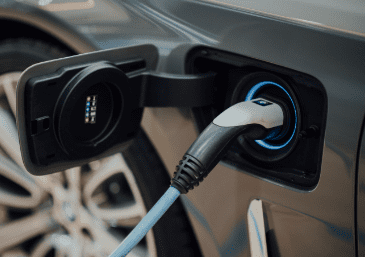The European Union (EU) and China are working hard to reach an agreement on the issue of tariffs for electric vehicles (EVs). As new tariffs are expected to start next week, both sides have decided to hold more technical discussions. These talks aim to find better options to avoid imposing extra fees on China-made electric cars in Europe.
What’s the Fuss About?
In October 2023, the European Commission (EC) decided to launch an investigation into battery electric vehicles (BEVs) imported from China. The EC believes these cars, which benefit from government subsidies, are making it hard for European car manufacturers to compete fairly. Because of this, EU member countries decided to impose higher tariffs on EVs imported from China for the next five years, in addition to the existing 10 percent tariff.

New Tariffs Are Just Around the Corner
The new tariffs are set to begin on October 31, which has led to both sides scrambling for solutions. But different EV companies face different rates. For instance, Tesla faces a tariff of 7.8 percent, while some companies like SAIC could see tariffs as high as 35.3 percent. The extra fees are expected to impact the price of EVs in Europe, potentially affecting car sales and making it difficult for Chinese carmakers to compete.
The Ongoing Talks
Today, Valdis Dombrovskis, who serves as the European Commission’s Executive Vice President and Trade Commissioner, had a video call with Wang Wentao, China’s Minister of Commerce. The aim was to talk about the ongoing negotiations. Both officials discussed the EU’s investigation and tried to find common ground. They reviewed the progress made so far in eight rounds of negotiations and talked about the big challenges that remain.
A Hopeful Approach
During the call, both sides committed to continuing their discussions and finding a mutually beneficial solution. This means that they want to come up with a deal that creates fair competition in the EU market while also meeting the World Trade Organization (WTO) standards.
The European Commission’s statement mentioned that these discussions would continue shortly. They also stressed that, according to WTO rules, individual companies under investigation can offer “price undertakings.” A price undertaking is when a company agrees to sell products at a specific price to avoid extra fees. The EU made it clear that this option is open to all companies being investigated.
The Role of CCCME
The China Chamber of Commerce for Import and Export of Machinery and Electronic Products (CCCME) is playing a crucial role in these negotiations. With the support of 12 Chinese EV makers, the CCCME proposed a price commitment to the EU back on August 24. This proposal came just days after the final results of the EC’s investigation were announced on August 20.
The CCCME has been actively participating in negotiations since then. In fact, technical teams from the EU and China held eight rounds of meetings in Brussels between September 20 and October 16. Unfortunately, these talks didn’t lead to a solution that both sides could agree on.
Tensions and Trust Issues
On October 16, the CCCME expressed its concerns that the EU had been holding separate discussions with some car manufacturers. The organization warned that doing so could damage the trust between the two sides and disrupt the overall negotiation process. The CCCME argued that these individual talks could weaken the foundation of their broader discussions and cause interference in the ongoing consultations.
Why Does This Matter?
This situation is significant because it could impact not only the car market in Europe but also the relationship between the EU and China. Higher tariffs on Chinese EVs could make these cars more expensive for European buyers, which might hurt sales. At the same time, it could push Chinese carmakers to reconsider their strategy in Europe.

China is a major player in the EV market, and its carmakers have been looking to expand their presence in Europe. Extra tariffs could create challenges for them, making it harder to compete with European car manufacturers. On the flip side, European companies have been feeling the heat from cheaper Chinese EVs that receive government subsidies, making it tough for them to stay competitive.
What Happens Next?
Both the EU and China know that time is running out. The new tariffs are set to kick in next week, so there’s a lot of pressure to find a solution quickly. Further technical discussions are expected to take place soon. Both sides are committed to finding an agreement that’s fair and complies with WTO standards. But whether they can reach an agreement before the new tariffs take effect remains to be seen.
Wrapping It Up
In short, the EU and China are stuck in a tough spot as they try to figure out what to do about tariffs on Chinese-made EVs. With the clock ticking, they are racing to find a solution that works for everyone. The goal is to create a level playing field, but there are still big challenges to overcome.


